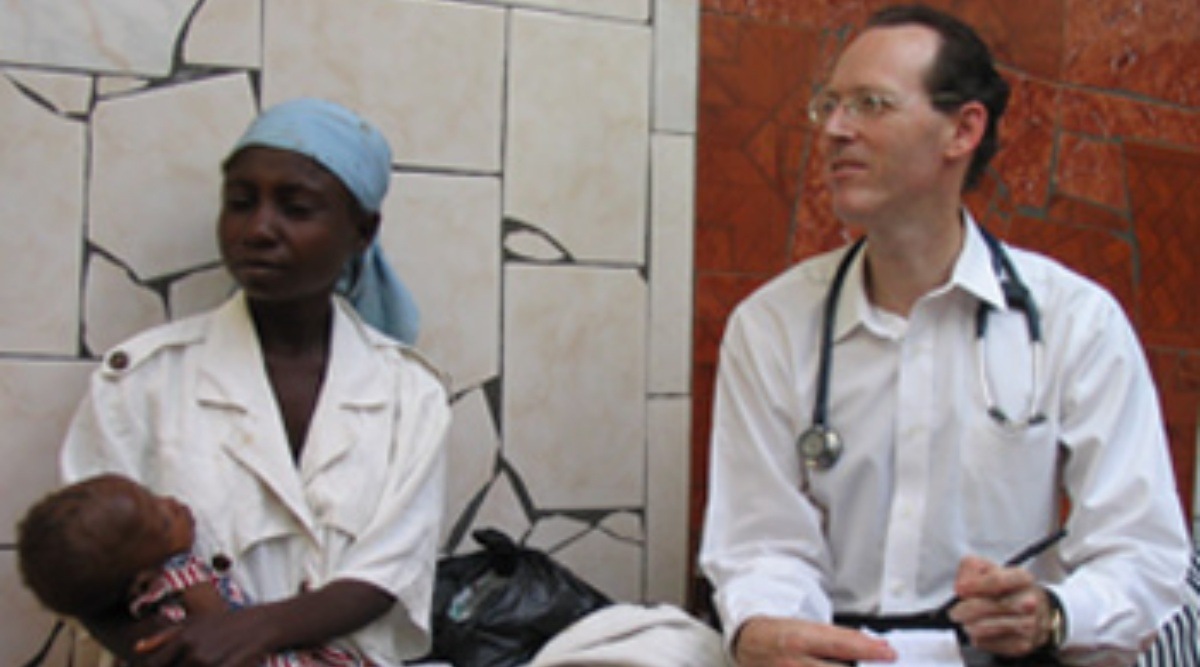 Farmer believed that the social construction of epidemics and the lived experience of sickness are very different and that poverty is not some accident of nature but the result of historically determined and economically driven forces. (Wikipedia)
Farmer believed that the social construction of epidemics and the lived experience of sickness are very different and that poverty is not some accident of nature but the result of historically determined and economically driven forces. (Wikipedia) My mother says that those who die in their sleep are divine. Dr Paul Edward Farmer died in his sleep on Monday. He was only 62 years old. He had dedicated his life to improving the health of the poorest. A physician by profession, he was also a trained anthropologist, a prolific writer and was the Kolokotrones University Professor and chair of the department of Global Health and Social Medicine at the Harvard Medical School. He was the co-founder of the non-profit organisation, Partners in Health (PIH).
I never met Farmer but followed his work, writings, interviews and other material which emerged from his years of working in Haiti, Rwanda and the impoverished regions of West Africa. His death is devastating news for the tiny tribe of global physicians and healthcare workers who have defied capitalist greed and dedicated their lives to the poor and underprivileged. Farmer was the lighthouse for this endangered tribe.
As a trained anthropologist, Farmer had a knack for asking simple yet important questions which unpeeled the layers of social stratification. Many of his books revealed how poverty works in the modern world. It puzzled him how common people in countries like Nicaragua, El Salvador and Haiti were able to put their lives on the line for dignity and social justice. His last book Fever, Feuds and Diamonds: Ebola and the Ravages of History (2020), deals with the Ebola epidemic in West Africa and traces the origins of this region’s neglected healthcare to centuries of colonial rule. This ability to logically trace the epidemic to an end point in the colonial history of the region shows a teacher in command of his skill and with the ability to reveal the “visibly invisible” to his students.
Having said this, it is extremely difficult to follow the massive yet meaningful canvas of Paul Farmer, the author. His books address not only the sociopolitics of healthcare but also spirituality, liberation theology, hope, political economics and even culture and society. His book Infections and Inequalities examined not only the link between poverty and disease but also revealed how developed countries like the United States treat poor, “invisible countries” like Haiti. His papers on tuberculosis and HIV form an important medical resource for physicians. Mountains Beyond Mountains, his biography by Tracy Kidder, is an inspiring book which all budding doctors should read. In Pathologies of Power, Farmer addressed the disparities in access to existing medical technologies.
With the Covid-19 epidemic ripping apart the healthcare systems of the world and opening up gaping holes in our interpretation of public healthcare, Farmer’s work becomes a guiding light, particularly for resource-challenged environments like India. He believed that the social construction of epidemics and the lived experience of sickness are very different and that poverty is not some accident of nature but the result of historically determined and economically driven forces. In India many of us work in set-ups which have been called “clinical deserts” by Farmer. These are hospitals without the tools of the trade. Farmer asked if such clinical deserts can be irrigated and concluded that they can. He believed that if a MASH hospital can be built adjacent to a battlefield, then one can certainly be built after the battle is over — for example, in Sierra Leone, Liberia, Peru or Guatemala after the civil war. He believed in pragmatic solidarities with partners in health.
Kidder writes in Mountains Beyond Mountains that on a trip to Cuba, Farmer revealed that he didn’t believe in Marxism but was fond of the then-Cuban President Fidel Castro, mainly for protecting the sick and the vulnerable. He writes that when they finally got to their hotel in Havana, Farmer said, “I can sleep here. Everyone here has a doctor.”
As Farmer goes to his eternal sleep, it is the responsibility of each one of us to ensure that his legacy is nurtured. Let us promise him that everyone on this planet will have a doctor.
The writer is professor, Department of Orthopaedics, AIIMS, New Delhi
- The Indian Express website has been rated GREEN for its credibility and trustworthiness by Newsguard, a global service that rates news sources for their journalistic standards.

